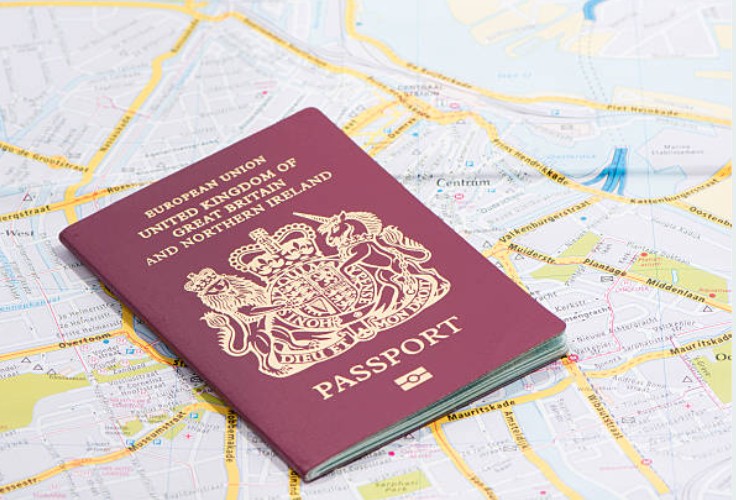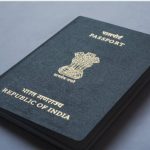Travelling within the UK by air is an experience many take for granted—until the moment of check-in brings up a critical question: Do You Need a Passport to Fly Within the UK? In this comprehensive guide, we leave no stone unturned as we examine the ins and outs of domestic air travel documentation.
This post covers everything from the accepted forms of ID to the evolution of policies and provides actionable advice for avoiding travel hassles. Whether you are a frequent flyer or embarking on your first domestic journey, our guide is tailored to the UK audience with the most current and detailed information.
What Identification is Required for UK Domestic Flights?
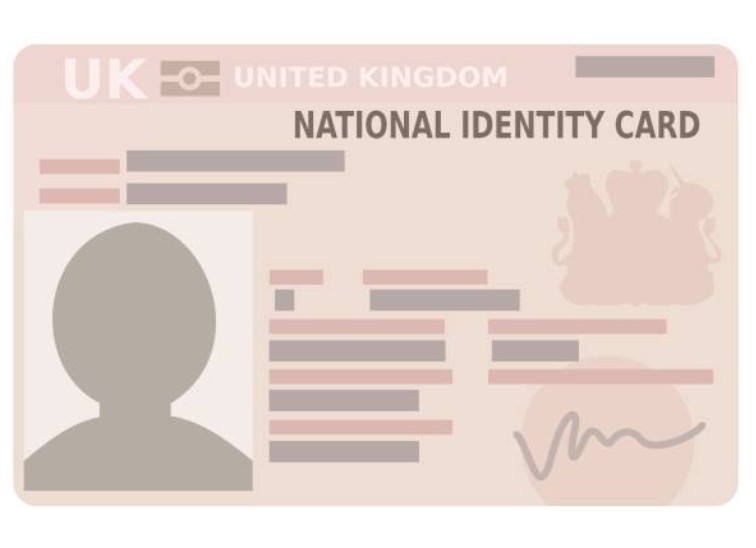
For the majority of domestic flights within the United Kingdom, the use of a passport is not mandatory. Instead, UK travellers have several options when it comes to acceptable forms of photographic identification. This approach reflects the UK’s unified travel system, where internal security is maintained with alternative, government-issued documents.
Accepted Forms of Identification
- Valid UK Driving Licence: The most common ID for many UK travellers, offering a convenient and widely recognised form of photo identification.
- Government-Issued Photo ID: In some parts of the UK, a national identity card (where available) is a valid option.
- Biometric Residence Permit (BRP): For non-UK citizens legally residing in the country, this document serves as an acceptable alternative.
- Other IDs: Although less common, some airlines may accept additional forms of official identification. It is always a good idea to check directly with your carrier if you are unsure.
Quick Comparison Table: Domestic vs. International Flights
| Aspect | Domestic Flights (UK) | International Flights |
| Passport Requirement | Not generally required | Mandatory |
| Accepted IDs | Driving licence, govt-issued photo ID, BRP | Passport only |
| Additional Documentation | Minimal checks beyond standard security | Visa, customs forms, and additional permits |
| Security Procedures | Streamlined for domestic travel | Enhanced with immigration and customs controls |
Do You Need a Passport to Fly Within the UK?
When considering the question Do You Need a Passport to Fly Within the UK? the answer is a resounding no for most journeys. However, the simplicity of this answer belies the underlying complexities involved in travel documentation. The policy is rooted in the fact that the United Kingdom is a single sovereign nation with a unified system of internal security, meaning that traditional passports, while essential for international travel, are not a compulsory requirement for domestic flights.
Why the Exception?
- Unified National Identity: The UK’s internal boundaries do not require passport control, so alternative forms of identification suffice.
- Streamlined Security: The security measures implemented at domestic airports are calibrated to verify identity without the need for the more rigorous passport checks seen at international terminals.
- Cost and Convenience: Avoiding the necessity of a passport for domestic flights saves travellers time, money, and administrative effort.
How Can You Ensure a Smooth Check-In Process?
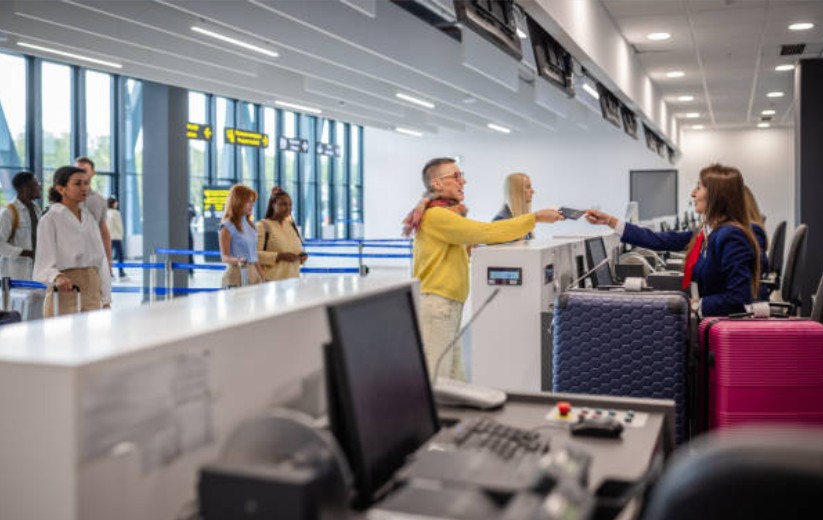
Navigating the check-in process with ease is all about preparation and understanding the requirements. While the overall process is straightforward, knowing the nuances can prevent unwanted delays or complications at the airport.
Step-by-Step Guide for a Hassle-Free Journey
- Double-Check Your Identification:
Ensure your preferred form of ID (such as your driving licence, government-issued ID, or BRP) is current and in good condition. Documents that are expired or damaged may be deemed invalid. - Review Airline Communications:
Examine your booking confirmation and any subsequent communications from your airline. Sometimes, carriers include unique requirements that may not be immediately obvious on their website. - Plan to Arrive Early:
Arriving at the airport well ahead of your scheduled departure time allows you extra moments to resolve any unexpected issues, especially if additional verification is required. - Prepare Backup Documentation:
It is wise to have digital copies or even physical photocopies of your identification documents. This extra step can serve as a safety net in case the primary document is lost or not recognised.
Process Checklist Table
| Step | Action | Outcome |
| Review Booking Info | Examine airline policies regarding acceptable IDs | Clarity on which forms of ID are valid |
| Validate Documents | Check expiry dates and physical condition | Avoid delays at security checkpoints |
| Arrive Early | Give yourself extra time at the airport | Reduced stress and time for resolution |
| Prepare Backups | Keep copies of your ID accessible | Mitigates issues in case of document problems |
What Are the Exceptions or Special Circumstances?
While most domestic journeys follow the standard rule of not requiring a passport, there are several exceptions and special scenarios that travellers should keep in mind.
Potential Exceptions to the Standard Rule
Low-Cost and Charter Airlines:
Some budget carriers or charter services may have their policies that require additional forms of ID or verification. These carriers might sometimes ask for a passport as a precautionary measure, especially if their documentation processes differ from those of major airlines.
Heightened Security Measures:
On rare occasions, particularly in response to security alerts or evolving government regulations, there may be temporary changes in the documentation requirements for domestic flights. These changes are usually communicated through official channels well in advance.
Traveling with Children:
Families travelling with minors might face additional documentation requirements. This could include extra forms of identification for the child or proof of parental consent, especially if the child is unaccompanied or if there is any discrepancy in the booking details.
Special Circumstances:
Instances such as lost documents, changes in travel plans, or discrepancies in airline databases may result in extra scrutiny. In such cases, having a backup form of identification can be crucial.
How Do These Identification Rules Benefit Travellers?
Why Rely on Alternative Forms of ID Instead of a Passport?
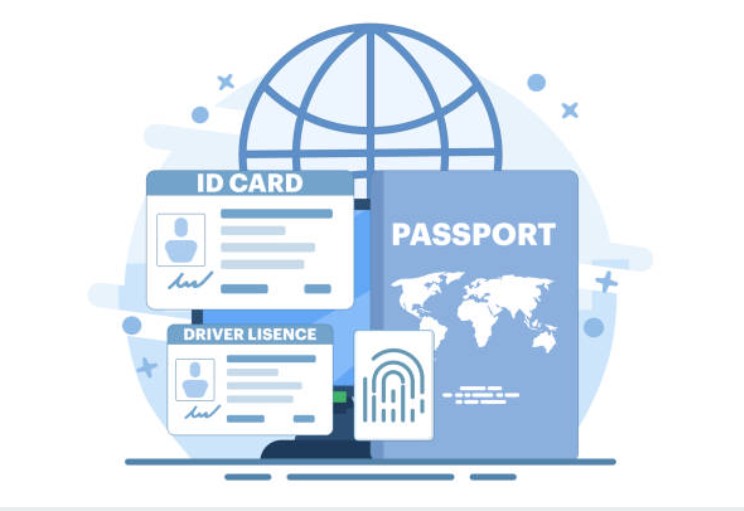
The rationale behind accepting alternative IDs is based on maintaining a balance between security and convenience for domestic travel. The system is built for optimal efficiency and robust security.
- Streamlined Security Checks:
By utilising familiar and widely used forms of identification like the driving licence, the check-in process becomes quicker and less stressful for travellers.
- Reliable Verification:
Government-issued IDs are subject to stringent verification standards, ensuring that they provide a level of security comparable to that of a passport for domestic travel. - Cost-Effectiveness and Accessibility:
Most UK residents already possess a valid driving licence, which eliminates the need for an additional passport when travelling within the country. This approach also reduces the administrative burden on both travellers and airlines.
Benefits in Bullet Points
- Simpler Processes: No passport means fewer hoops to jump through.
- Efficiency: Faster check-in and boarding processes.
- Cost Savings: Avoid additional fees or delays associated with passport processing.
- Accessibility: Easily accessible documents for most UK residents.
How Does the UK’s Approach Compare to Other Countries?
The UK’s domestic flight policies are unique when compared to those in other regions of the world. Here’s a closer look at how the UK’s approach stands out:
In the United States:
- Similar to the UK, the US accepts a range of identification for domestic travel. However, compliance with the REAL ID Act has added layers of requirements that some states enforce strictly. This means that while alternative IDs are accepted, they must meet additional federal standards.
In the European Union:
- Many EU countries accept national ID cards for domestic travel, but when crossing borders, a passport becomes essential. The UK’s system is streamlined because it does not involve cross-border travel within its domestic flights.
In Asian Countries:
- There is significant variation across Asian countries. Some nations have more rigorous internal controls that might require a passport even for domestic flights, reflecting differing national security protocols and administrative practices.
Comparative Table: International Perspective on Domestic Travel IDs
| Region | Primary Domestic ID | Key Considerations |
| United Kingdom | Driving licence, BRP, govt-issued ID | No passport required; unified domestic system |
| United States | State-issued ID (REAL ID compliant) | Enhanced verification under the REAL ID Act |
| European Union | National ID card or passport | A passport is often necessary for cross-border travel |
| Asia | Varies by country | Some require passport-like documentation for internal flights |
How Should You Handle Problems at the Airport?

Even with thorough preparation, unforeseen issues can occur. Here’s what you can do if you encounter ID-related challenges at the airport:
- Seek Immediate Assistance:
Approach airline staff or visit the help desk if your document is not recognised. Airline personnel are trained to handle such situations and can offer immediate guidance. - Utilise Backup Documentation:
Having digital copies or secondary forms of ID can make a significant difference. This is particularly important if the primary document is lost, damaged, or otherwise questioned. - Know Your Rights and Responsibilities:
Familiarise yourself with the guidelines issued by the UK Civil Aviation Authority. Understanding the rules can empower you to confidently address any issues that arise. - Stay Calm and Courteous:
Stressful situations tend to be resolved more efficiently when handled with a clear mind. Remaining calm not only aids in communication with airline staff but also helps in swiftly navigating through any complications.
Troubleshooting Guide in Table Format
| Issue Encountered | Recommended Action | Result |
| ID Not Recognised | Approach the airline’s help desk immediately | Obtain clarification and support |
| Document Damaged or Expired | Provide backup documentation or request temporary verification | Minimise disruption to travel plans |
| Policy Confusion | Request a detailed explanation from a supervisor | Clear understanding of the requirements |
What’s the Historical Background of UK Domestic Flight ID Policies?
The evolution of identification policies for domestic flights in the UK reflects broader global trends in security and technology:
- Early Travel Practices:
Before the widespread adoption of air travel, identification checks were minimal. Domestic journeys required little more than a basic verification process. - Post-9/11 Reforms:
Global security concerns led to significant overhauls in travel documentation and verification processes. Although international travel saw dramatic changes, domestic travel also experienced updates to align with heightened security measures. - Modern Technological Advances:
In recent years, biometric verification and digital documentation have transformed the check-in process. The ability to verify identities quickly and securely without relying on passports has allowed domestic travel to remain efficient and accessible.
Timeline of Key Changes
- Pre-2000: Loose identification standards with minimal enforcement.
- 2001–2010: Security enhancements following global events, introducing more stringent checks even on domestic flights.
- 2010–Present: Integration of digital verification, biometric data, and the continued acceptance of alternative IDs, resulting in a secure yet user-friendly system.
Final Thoughts: What’s the Bottom Line?
After exploring all aspects of the question Do You Need a Passport to Fly Within the UK? UK residents enjoy a streamlined travel experience when flying domestically. Instead of a passport, alternative forms of government-issued photographic ID, such as a driving licence or biometric residence permit, are sufficient for most journeys. This approach not only simplifies the check-in process but also reflects the United Kingdom’s unified system of internal travel security.
Frequently Asked Questions (FAQs)
Do I need a passport if I have a valid UK driving licence?
No, a valid UK driving licence is sufficient for most domestic flights, as long as it meets the airline’s criteria.
Can a biometric residence permit (BRP) be used instead of a passport?
Yes, non-UK citizens residing in the UK can use their BRP as an acceptable form of identification for domestic flights.
Are there differences in ID requirements between low-cost carriers and traditional airlines?
Yes, some low-cost or charter airlines might impose stricter ID requirements. Always review your airline’s guidelines and confirm their policy before traveling.
What steps can I take to avoid issues with my ID at the airport?
- Double-check that your ID is valid and undamaged.
- Review your airline’s communications regarding document requirements.
- Arrive at the airport early to allow time for any unexpected issues.
- Keep backup copies of your ID readily accessible.



